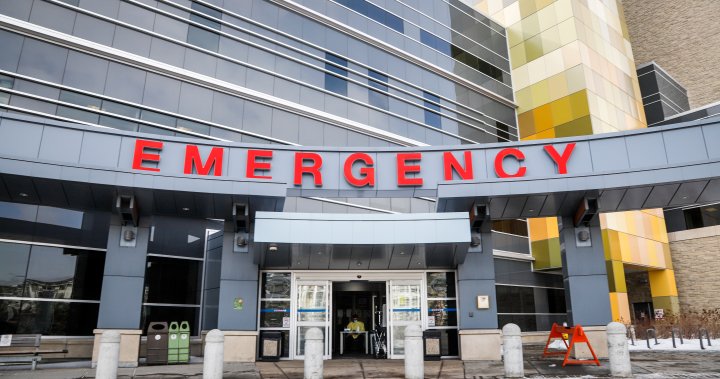State of provincial health systems has Canadians worried, poll suggests – National | Globalnews.ca
A new survey suggests the vast majority of Canadians have concerns about the state of the health-care system, particularly in Atlantic provinces where hospitals have struggled to maintain emergency services for months.
Leger and The Association for Canadian Studies surveyed 1,554 Canadian adults over a two-day period in January.
Doctors, nurses and patient advocacy groups have been frantically waving red flags about the crisis unfolding in Canadian hospitals since the pandemic began, when intensive care units and emergency rooms were flooded with patients.
Read more:
Retain nurses before recruiting them from other provinces: association
Read next:
Fireball facing lawsuit for selling mini bottles that don’t contain whisky
Since then, the already burnt-out workforce has steadily declined, leaving fewer health workers to cope with waves of flu and other respiratory illnesses at the end of last year.
About 86 per cent of people surveyed across the country said they are worried about the state of health care, compared to 94 per cent of those surveyed in Atlantic Canada.
The people surveyed were slightly more concerned about the state of health care if they reported receiving care in the last year.

People in Eastern Canada also worry about the quality of care they’ll get if they need to go to an emergency room: 81 per cent say they’re concerned, compared to 67 per cent of Canadians overall.
The labour shortage in that part of the country has repeatedly caused temporary emergency room closures, forcing patients to travel farther for the care they urgently need.
In Nova Scotia, those closures mainly happened in rural hospitals, a government report issued late last year shows.
Read more:
Montreal hospital asks for cooperation as situation in ER remains ‘precarious’
Read next:
Mexico’s richest man lists $80M NYC mansion and it could break records
Countrywide, 90 per cent of rural survey respondents reported concern about the state of health care.
Overall, 54 per cent of Canadians characterize the quality of their provincial health system as good or very good, while 43 per cent say it is poor or very poor.
Canadians’ assessments of their public health-care systems are rather dim when compared to the answers of 1,005 Americans surveyed, 74 per cent of whom graded their own health system as good or very good.
As provincial and territorial governments try to work through surgical and diagnostic backlogs that accumulated over the course of the pandemic, some have turned to private clinics to ease the load. The move has created a polarized debate about private delivery of public health care.
Of Canadian respondents to the survey, 53 per cent said they do not want to see more privatization in their provincial health-care systems.
As the federal government negotiates with provinces to pay a larger share of the bill for health-care services, 69 per cent of Canadians who responded to the survey said their provincial governments were not putting enough money into the system.
The survey cannot be assigned a margin of error because online polls are not considered truly random samples.
© 2023 The Canadian Press
For all the latest health News Click Here




